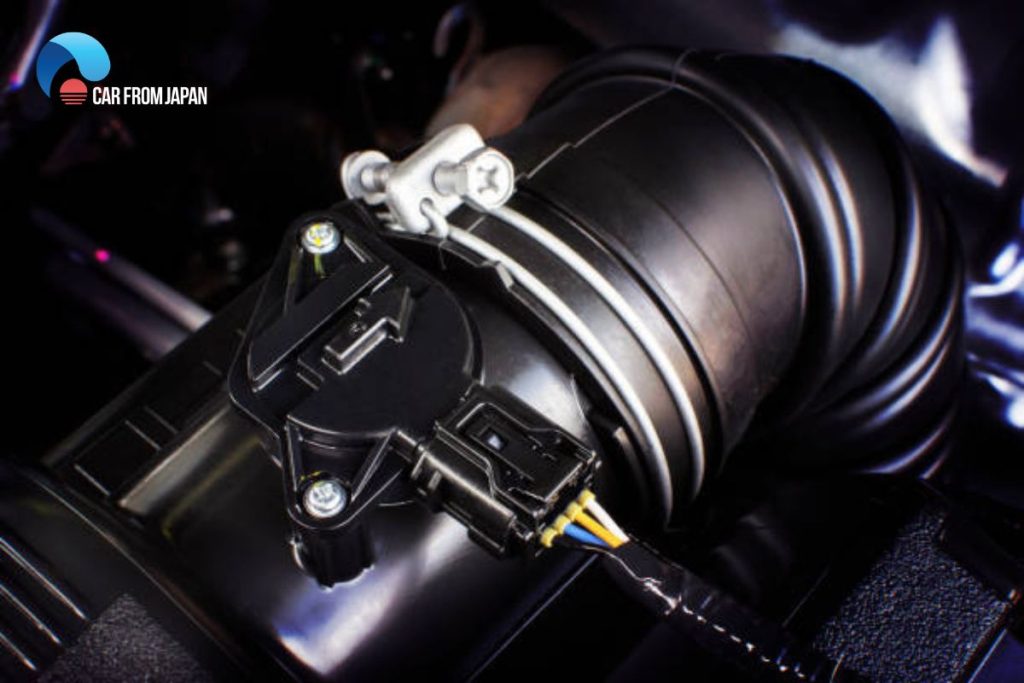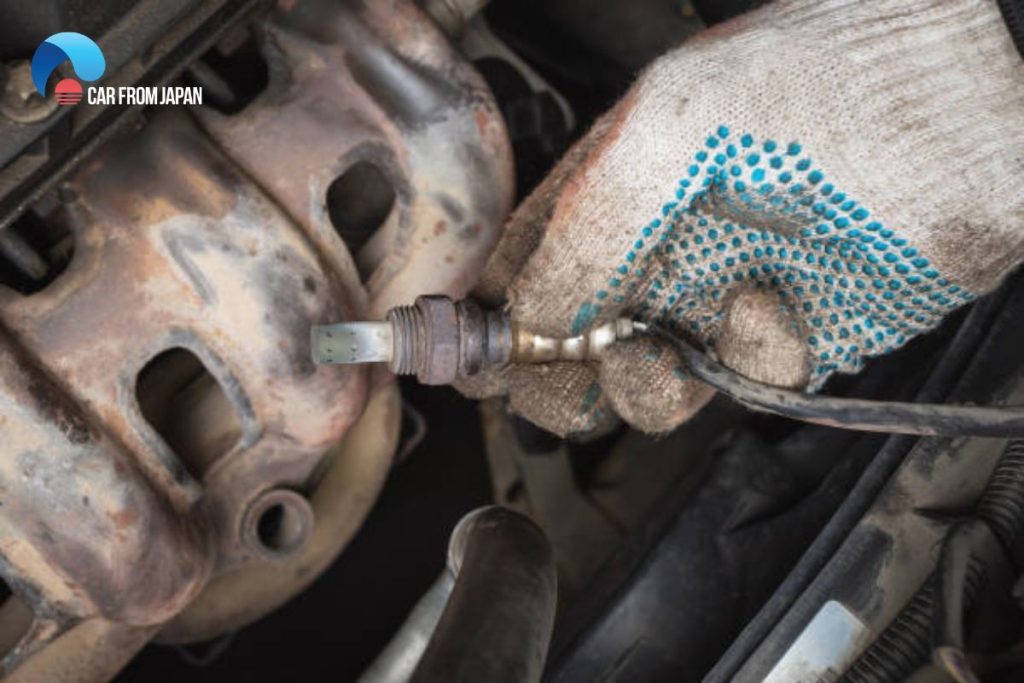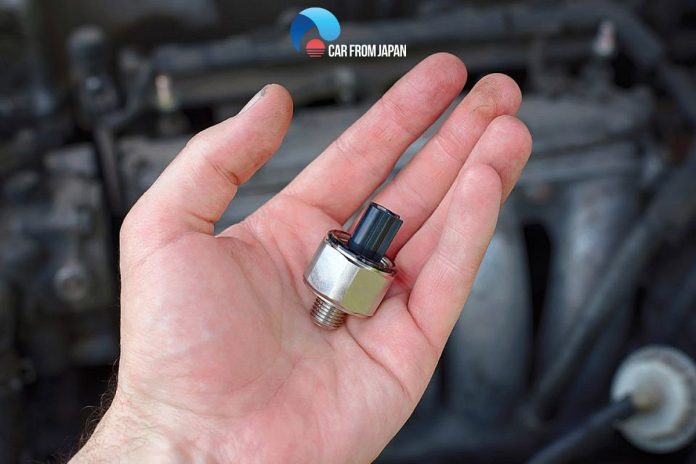So, your mechanic says you need a new knock sensor. Here’s the good news and the bad news. The part itself is usually pretty cheap. The bad news? On many modern engines, it’s buried deep under other parts, which significantly increases the labor cost. How much does it cost to replace a knock sensor? Here is a more specific explanation of how the knock sensor works, the cost of knock sensor replacement, and how to handle it if there are any troubles. Let’s find out now!
Contents
- What Does A Knock Sensor Do?
- Cost of Knock Sensor Replacement
- The Knock Sensor Error Signs
- How To Maintain and Handle Knock Sensor Errors?
- FAQs On The Knock Sensor
- What is the location of the knock sensor on the car engine?
- Is it possible to replace the knock sensor yourself?
- How long does it take to replace a knock sensor?
- Are knock sensors still used in other types of engine systems?
- Can the knock sensor cause other problems in the engine system?
- How to save money for a knock sensor replacement?
- Wrapping Up
What Does A Knock Sensor Do?
The knock sensor’s job is to measure knocks in the engine and generate a voltage signal sent to the ECU, from which the ECU will receive and analyze this signal to adjust the ignition advance angle to reduce knocking (usually, the knock is caused by the mechanical parts of the engine being detonated).
In the event of a fault, the ignition angle is the most recent. If an explosion is detected, the ECU will reduce the ignition angle prematurely.
When the engine is running for some reason, causing knocking (self-ignition, engine overheating, mechanical shock, etc.), the sensor will generate a voltage signal and send it to the ECU, and the ECU will automatically adjust to reduce the noise.
Specifically, the piezoelectric element of the knock sensor is designed with the size of the natural frequency coinciding with the motor’s oscillation frequency when the detonation phenomenon occurs, so that the resonance effect occurs (f = 6KHz – 13KHz).
Thus, during engine detonation, the quartz crystal will be under maximum pressure and will generate voltage. This voltage signal has a value of less than 2.5V. Using this signal, the engine ECU detects detonation and reduces the ignition angle until no more detonation. The engine ECU can adjust the re-ignition timing.

Cost of Knock Sensor Replacement
A knock sensor can assist in improving fuel efficiency and torque, giving the vehicle additional power. It is a crucial engine component in terms of performance. When this component breaks, drivers may notice a reduction in power or mileage, as well as considerable engine head damage over time.
The average engine knock sensor replacement cost ranges from $180 to $400. A pickup truck sensor will be more expensive than a sedan sensor. The majority of the expense is labor, while the sensor itself is just about $80. The real pricing range, however, is determined by the manufacturer and model. Here’s the total cost breakdown:
- Part cost: The knock sensor itself is usually pretty cheap. For most cars, the part will cost between $40 and $150.
- Labor cost (The Big Factor): This is what causes the price to change so dramatically. The cost is based on where the sensor is located. For example, on some engines (many 4-cylinders), the knock sensor is bolted right to the outside of the engine block. A mechanic can replace it in less than an hour. In this case, you can expect the total bill to be in the $150 to $250 range.
The Knock Sensor Error Signs
- Not working: If the knock sensor is not working as needed, it may be damaged and need to be repaired or replaced.
- Incorrect alarm sensor: The knock sensor alarms work incorrectly, for example, alarms at the wrong frequency or alarms when there is no detonation-related event. The sensor may be damaged. or need to be corrected.
- Weak signal: If the knock sensor gives a weak signal, it may not function properly in the event of a detonation-related event and should be checked and calibrated.
- Traces of wear or physical damage: If the knock sensor is worn or physically damaged, e.g., scratched, broken, or cracked, it may not work properly and needs to be repaired. or replaced.
- Long-life sensor: The knock sensor has a limited lifespan, and after a period of use, it can become unreliable and need to be replaced.

How To Maintain and Handle Knock Sensor Errors?
When encountering errors related to the knock sensor, some solutions can be applied as follows:
- Check connection: Check the knock sensor connection to make sure that it is connected correctly and that there is no broken wire. If there is a connection problem, remove it and plug it back in or replace it.
- Check sensor condition: Use a tester to check the condition of the knock sensor. If the sensor does not work, replace it with a new one.
- Cleaning the sensor: If the sensor is dirty or dirty, clean the sensor using a suitable cleaner.
- Repair or replace related components: If other components in the engine control system fail or do not function properly, they can cause knock sensor-related errors. Check and repair or replace these components.
- Change driving mode: If knock sensor-related failures occur due to incorrect driving mode, adjust the driving mode to ensure the safety and optimum performance of the dynamic control system muscle.
FAQs On The Knock Sensor
What is the location of the knock sensor on the car engine?
The knock sensor location on the engine depends on the type of vehicle. Usually, it is located on the engine block, on one of the wall panels, or on the cooling system.
Is it possible to replace the knock sensor yourself?
It is possible to replace the knock sensor yourself but should be done by people with experience in auto repair. Otherwise, it may cause problems with the engine control system and driving safety.
How long does it take to replace a knock sensor?
The replacement of a knock sensor can take anywhere from 20 minutes to three or four hours, depending on how simple or difficult the sensor is to access on your specific car.
Be prepared to pay for a full hour of labor even if it takes less time, as this is the very minimum that some shops will charge.
Are knock sensors still used in other types of engine systems?
In addition to automotive engine systems, knock sensors are also used in other types of engine systems such as aircraft, train, ship, and agricultural engines to help reduce the likelihood of a crash in detonation and protects the engine from damaging problems.
Can the knock sensor cause other problems in the engine system?
If the knock sensor is in bad shape or not working properly, it can cause other problems in the engine system such as loss of power, difficulty starting, unexpected detonation, increased fuel consumption, and other problems related to the engine performance.
How to save money for a knock sensor replacement?
The most cost-effective approach to replacing a knock sensor is to do the work yourself. Anyone with mechanical aptitude and access to tools may easily replace the sensor.
For most individuals, the major issue is correctly detecting a knock sensor failure. While there are a few indicators, they might be symptoms of a variety of issues.
Check out this video from EasyAutoFix to learn more about the symptoms of a bad knock sensor:
Wrapping Up
In this article, we learned about the knock sensor, how it works, the cost of knock sensor replacement and the signs that this part needs to be repaired or replaced.
On that basis, we can conclude that periodic maintenance of the knock sensor is very important to ensure the safety and optimal performance of your vehicle.



